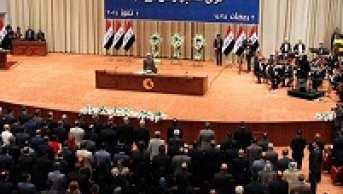Legal Dimension of Kirkuk Crisis

Kirkuk governor submitted a letter, on 14 March 2017, to the Kirkuk Provincial Council and requested the raising of the flag of the Kurdistan Regional Government in state buildings in Kirkuk. The Provincial Council convened on 28 March and decided to unfurl the flag of the Kurdistan Regional Government in public buildings in Kirkuk, upon the votes of 25 Kurdish members out of 41 members in total. It was also decided that a referendum would be held on4 April, in accordance with the Article 140 of the Iraqi Constitution, in order to determine the fate of Kirkuk.
In this article, we will try to discuss and evaluate the dimensions of this decision which has raised several debates and objections; and later to assess the decision of the Iraqi parliament, dated 2 April, annulling the decision of the Provincial Council and to determine the legal remedies which will settle the crisis triggered by Kirkuk Provincial Council.
The constitutional statusof Kirkuk Province
The article 143 of the Iraqi Constitution which entered into force in 2005 revoked the "Law of Administration for the State of Iraq for the Transitional Period" which was enacted in 2004, but it underlined thatthe paragraph A of Article 53 and Article 58 of this law remained in force and were part of the Constitution.The mentioned paragraph A is as follows: “The government controlling the territories in the provinces of Dohuk, Erbil, Sulaymaniyah, Kirkuk, Diyalah and Nineveh on 19 March 2003 is recognized as the official government under the name of Kurdistan Federal Region government.”According to this provision, all the regions of Kirkuk governorate (Kirkuk district center, Altunkopru, Dibis, TuzKhormato, Daquq, Havijah and all Turkmen villages associated with the central district of Kirkuk) which were controlled by the central government on the date prescribed in Article 143 of the Constitution remained outside of the scope of the paragraph A and continued to exist under the control of the central government in the capital city of Baghdad.
Given that Kirkuk province was governed by Baghdad central government but not by the government of Kurdish federal region before, on and after the date stipulated under the aforementioned article, this province remains outside of the authorityof Kurdish region and is associated with the central government of Baghdad according tothe Constitution. Therefore, it is not appropriate in constitutional terms to say that Kirkuk is part of the Kurdistan region.
The authority of the Kirkuk Provincial Council regarding the raising of Kurdish flag in Kirkuk
Irrespective of neither the decision no. 71 issued byUS Civilian Administrator in Kirkuk Paul Bremerin 2004nor the Law No. 21 dated 2008 on the provinces not associated witha federal region, this law grants the provincial councils with the authority to enact local laws on the condition that they are not contrary to the Constitution and federal laws regarding the provincial administration. This means that a province which is not associated withany federal region is not authorized to take decisions on matters which fall within the authority of the central government.
The third paragraph of Article 2 of the Law No. 21 dated 2008 on Provincial Councils, which was amended in 2013,stipulates that the provincial councils are subject to parliamentary control. The fifth paragraph of the same article also states: “Except for the authorities which are stipulated in Article 110 of the Constitution and exclusively restricted to the authority of the federal governments,local governments shall exercise the powers granted to them by the Constitution and federal laws.”
Since Kirkuk is a province which is associated with the central government and is not under the authority of the Kurdish region, it is clear that the decision of the Kirkuk Provincial Council to unfurl the flag of the Kurdistan Regional Government next to the flag of Iraq in state buildings is unconstitutional and contrary to the laws in force.
Decision of the Kirkuk Provincial Council to hold a referendum on the future of Kirkuk
The decision of the Kirkuk Provincial Council to hold a referendum in order to determine the fate of this province was based on the Article 140 of the Iraqi Constitution.
Article 140 of the Constitution is as follows: “The responsibility of the transitional government in Article 58 of the Law of Administration for the State of Iraq for the Transitional Period shall be fulfilled by the government elected under this Constitution,but this responsibility(normalization, census and referendum to be held in Kirkuk and other disputed territories in order to determine the will of the citizens)should be completely fulfilled no later than 31 December 2007.”
Those who are in charge on this matter should take into account the following facts included in the article of the Constitution:
1. There was a time-limit for the implementation of this constitutional article, which was the last day of 2007.Given that this time-limit expired and it has been almost ten years since the last mentioned date, it couldbe possible to put this article into effect again only through a constitutional amendment introduced in accordance with Article 122 of the Constitution. Article 140 was included exactly in the second part titled "transitional provisions" under the sixth chapter titled "final and transitional provisions" of the Constitution. This shows that this article was put into effect for a limited transition period and is a transitional article which was not timely implemented. In this regard, many well-known legal experts indicate that the time-limit of this article has finishedand it is not possible to implement this law without a constitutional amendment. Additionally, efforts made to extend the mentioned time-limit have not been successful. The efforts of the UN delegation for the extension of the period to the sixth month of 2008 after the expiry of the time-limit ended up in failure as well. It is also a fact that the United Nations is not entitled by law to take such actions since its role hadbeen limited to consultation, support and assistance to the Iraqi government and the parliament, only upon the request of the Iraqi government, according to the Resolution No. 1770 of the Security Council. Moreover, the decision on the extension of the period also proves that this period is over. The decision on the extension of the period of a provision of law is logically taken when such a period expires.
2.Although the period of the Article 140 in the Constitution has ended, if one presumes that it ispossible to implement this article; holding a referendum for the annexation of Kirkuk to the Kurdish regionis still an illegaldecision - as well as contrary to the Article 140.
Article 140 of the Constitution has introduced a three-phase mechanism for the implementation of this article:Normalization, census andreferendum.Referring to the reinstatement of the rights seized by force during the overthrown regime, normalization has not been put into practice duringthis term;the census which has been set as a condition in the article in order to determine who has the right to participate in the referendum has not so far been made. Given that these two phases have not been accomplished as required in the Article 140, it is obviously impossible in both legal and logical terms to hold areferendum which is the third phase of the article.
3.Article 140 has set the objective of the referendum as “determining the will of its people” by making reference to the people living in Kirkuk and disputed areas. The article has introduced a general provision on this matter and has not precisely mentioned about “the determination of the will of its people for the integration into the Kurdistan region.”As presented, the article has been limitedto givean overall framework. The willshown by the people in this respect may come true through several aspects and possibilities. Integration into the Kurdistan region may only be one of these possibilities. The following possibilities may also be added:
- Kirkuk or any other disputed territory may remain directly associated with the central government.
- A federal region may be formed under the name of “Kirkuk Region” in accordance with Article 119 of the Constitution which allows one or several provinces to form a federal region.
- A federal region may be formed by several provinces in accordance with the mentioned Article 119.
4.Article 119 of the Iraqi Constitution, which regulates the establishment of federal regions, mentions only about “the establishment of a region” but not “its integration into an existing region.” Therefore, the clause of “determining the will of its people” under Article 140 does not allowthe integration of Kirkuk governorate or any other region in Iraq into the “Kurdistan Federal Region” according to the existing constitution.
Decision of the Iraqi Parliament on31 March 2017
The decision approved by the Iraqi parliament includes the following provisions:
1.Unfurling only the flag of Iraq in state buildings in Kirkuk and revoking the decision of the Provincial Council which envisages the raising of the flag of KRG in Kirkuk state buildings according to the Article 143 of the Iraqi Constitution and the fifth paragraph of the Article 23 of the Law No. 36 dated 2008.
2.The articles 111 and 112 of the Iraqi Constitution underlines that the oil is owned by the people of Iraq.The oil fields in Kirkuk are managed by the federal government.Therefore, the federal region or Kirkuk governorate is not entitled with the right of exporting oil without the information and the approval of the central government.
The Kirkuk Provincial Council, on its part, has stated that these decisions taken by the parliament are unlawful and unconstitutional and they will not be put into practice and it is not bound by them.
Indeed, it is obvious that the mentioned decision of the Kirkuk Provincial Council is contrary to the Article 140 of the Constitution, which states that Kirkuk is a part of the Iraqi government and included in the disputed territories but is not part of the Kurdish region.Therefore, the Kirkuk Provincial Council and Kirkuk governor have to abide by the Iraqi legislation and only the flag of Iraq should be raised in the state buildings in Kirkuk and any act taken contrarily means the violation of the provisions of the Constitution and the Iraqi flag law.Furthermore, the Provincial Council is not authorized to take decisions on the matter related to the principal of sovereignty such as the raising of the flag of the Kurdistan Regional Government in Kirkuk state buildings and the annexing Kirkuk to Kurdistan federal region.
Given that the Kirkuk Provincial Council insists on rejecting the decision of the parliament (except Turkmen and Arab members boycotting the meetings of the council), this dispute can be settled by applying to the federal court for the revocation of the mentioned decision of the Provincial Council. As is known, in accordance with Article 93 of the law related to the establishment of the federal court, the court is authorized to interpret the constitutional articles, to settle the disputes arising from the implementation of federal laws and to decide on the disagreements between the central government and the regions and provinces. The decision which will be taken by the federal court on this matter is final and binding for all parties, according to Article 94 of the mentioned law.






